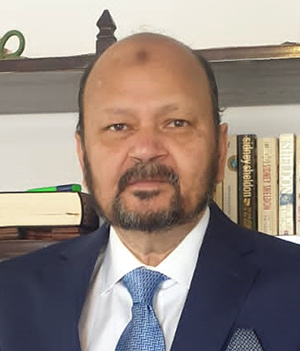As we welcome 2022, there is a sobering realisation that the problems which plagued the beginning of the decade — the pandemic and the economic fallout — are not going away anytime soon. But, at Narratives, we are cautiously optimistic. Despite several challenges, Pakistan has fared quite well in dealing with the epidemic. A well-managed vaccine campaign successfully vaccinated one-third of the population — not enough, but much better than other similar nations around the globe.
2021 was not an easy year for Pakistan. Mob and vigilante violence in general, and the assassination of a Sri Lankan national reminds us that violence is the critical tool of choice for those on the fringes. And violence is especially concerning given the region’s geopolitical events. With the Taliban gaining power in Afghanistan, ISIS rearing its ugly head in the region, the Tehreek-i-Taliban Pakistan (TTP) violating ceasefires, and Indian fascism next door, Pakistan must devise a strategy to combat the resurgence of violence from non-state and mainstream groups. It has been a challenging year in terms of security. It appears that this will be a concern for the foreseeable future. With the dawn of the new year, Imtiaz Gul illustrates two scenarios for “a financially hamstrung Taliban regime” as it struggles to gain both, international legitimacy and the funds needed to survive.
On the economic front, things have been rough as well. The world has faced a violent onslaught of inflation, which entails harsh measures in Pakistan’s difficult circumstances. Repeated price increases for gasoline, sugar, wheat, food and other necessities have cost the government dearly, especially in terms of public support. .
Nonetheless, there has been a boost in wheat, rice, sugarcane, and maize production, and development in large-scale industry and the services sector, resulting in GDP growth, which, given the epidemic, is no minor achievement. As Abid Sulehri writes in this issue, “agriculture in 2022 is dependent on how quickly our farmers adapt to climate change and shift to climate-smart agriculture.”
In 2021, the government focused on strengthening and improving social protection programmes. The impact of inflation will undoubtedly take its toll on the government; but it should be noted that it also invested in welfare. The cash allocation for the Ehsaas programme has been enhanced, and the procedure for universal healthcare has been widened in partnership with the provincial governments through the Sehat Sahulat Program and the Kissan Card.
In his optimistic piece, Hunaid Lakhani, a leading educationist, recommends that mission educators must be linked to several objectives: Rebuilding a global governance system capable of effective integration and swift response to threats such as pandemics, trade wars, and populism; adopting norms and practices that promote sustainable economic activity; achieving freedom, equality, and standards of justice; and enabling environmentally sustainable development on all continents.
As Ambassador-designate to the United States, Masood Khan writes in this issue, “Pakistan will have to work deftly on the economic and political fronts to secure its place in the new global order.”
As we kick off 2022, let me leave with a stanza by Allama Iqbal;
“Let this be our beautiful departure from stagnation; let our minds come alive; enter another dimension; go beyond the stars eagerly struggling to find that… which our naked eyes did not know existed; rise like a falcon born to soar and not be alone, but be present amongst others.”

Editor, Narratives



